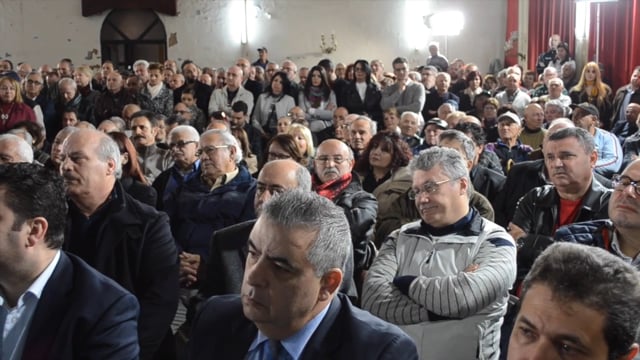[WATCH] Muscat pledges to tackle governance record 'head-on'
Prime Minister Joseph Muscat thanks former minister Manuel Mallia and former parliamentary secretary Michael Falzon for assuming political responsibility, says Opposition leader Simon Busuttil does not have moral authority to speak about governance


Prime Minister Joseph Muscat has this morning pledged that the government would tackle the issue of governance head-on, and claimed that the resignation of former parliamentary secretary Michael Falzon had not defaulted voters to the PN.
Admitting that the government carried out mistakes during its first two and a half years in power, Muscat, still reeling from a damming verdict from the Auditor General into the expropriation of property owned by Mark Gaffarena which led to the resignation of one of Labour’s major stalwarts, mounted a spirited offence against the PN’s track record and Simon Busuttil’s role in corruption scandals.
Taking umbrage at Busuttil – who has said that corruption has become a trademark of the government – the Prime Minister questioned the Opposition leader’s integrity and argued that he had no moral authority to speak about governance.
“If Simon Busuttil really means on what he says on good governance, and had he been man enough, he should have resigned from the PN at the time when the Nationalist administrations oversaw a series of political and corruption scandals in Malta. Instead, he stood silent and could therefore be considered an accomplice,” he said.
The prime minister also claimed that whereas previous PN governments swept corruption scandals under the carpet, the government instilled change when it came to assuming political responsibility and made significant inroads in tackling corruption.
“Thanks to its record of change, the government has the moral authority to show that it can admit that it is not perfect and learn from its mistakes … We will face the issue of governance head-on because we want to show that we are a changing direction and will continue to change,” he said.
At this point, Muscat thanked former home affairs minister Manuel Mallia and former lands parliamentary secretary Michael Falzon for assuming political responsibility, and claimed that Simon Busuttil was in awe of the sort of people which the Labour Party has.
“The government will not only retain its strength, but more Nationalists would switch to Labour because they seeing a movement for the future,” he said.
Buoyed by hundreds of Labour supporters at the Orpheum Theatre in Gzira, Muscat insisted that the government would not employ the “negative” tactics that have become synonymous to the Nationalist Party, arguing that it would be useless to dwell on the past and list the scandals that rocked the country as the people had “given up on the Nationalist Party.”
Rather, the people were interested in the future and had confidence in the government, Muscat said.
Championing the changes that the government carried out in its first two and half years, Muscat argued that the party carried out risks to get out of its shell but still retained its Social Democratic roots.
“The party needed to get out its shell and not live in the past. In five years, a party that was stuck in the Opposition has emerged as the people’s natural choice. The people voted for change and this government has delivered on its promise of stability,” he said.
Muscat explained that Malta now had a stable government, had managed to narrow the national deficit and will repay all the debt that the previous PN administration incurred.
The prime minister said even though the Labour Party was the founder of the welfare state, it was duty bound to tackle the rampant benefits abuse. On migration, Muscat said Malta was no longer begging for attention but was now being heard, and consequently, the arrival of refugees in Malta decreased drastically.
He also said that by the end of the legislature, Air Malta would be on its feet and that investments in the medical school in Gozo and the university in Marsaskala would bring more investment.






.jpg)
















